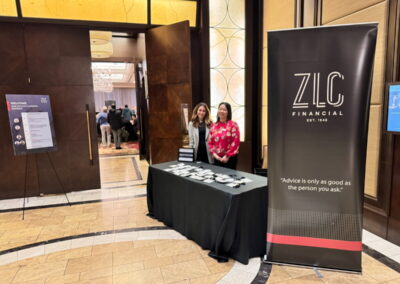After a lifetime of work, most of us would like to know that our assets and legacy are transferred to the next generations, children and grandchildren, in the amounts and percentages we chose while alive. Our hope is that this would happen as painlessly, securely and quickly as possible.
We have seen loving families, with the best intentions, fail to adequately plan this transfer of assets and they are faced with disappointing financial and emotional consequences. There is the very real risk that your assets will not land in the hands of the people you intended. In addition, even when your wishes are met, without the proper planning and communication, feelings can be hurt with long lasting negative, albeit unintended, consequences.
What is probate?
Probate is a legal procedure that validates a deceased’s Will and confirms the Executor’s authority to carry out the testator’s wishes.
Are all wills subject to probate?
There is no requirement that every Will must be probated. Proper planning can eliminate the need for probate and the type of asset involved will generally dictate whether or not probate is required.
What is the cost of probate?
This varies by Province. British Columbia has fees of $14 per thousand (1.4%) on estates over $50,000 plus a filing fee. Property owned in another province may attract fees based on that province’s fee schedule.
What are advantages to probate?
- When Letters of Probate are obtained, financial institutions, transfer agents, land registry offices and other third parties can safely transfer the assets to the intended recipients.
- The time frame for any court challenges to the Will or Estate is usually measured from when the probate was granted. This limits the period of when legal action may be taken.
What are the disadvantages to probate?
The process can be very expensive, time consuming and complex; the process is open to public scrutiny. This loss of privacy can be very important to the ongoing harmony of the family when assets aren’t left equally amongst the beneficiaries.
7 Tips to avoid probate
- Make sure you have a will – Probate fees will be applied automatically if you die intestate (without a will).
- Gifting prior to death – this can reduce the value of the estate subject to probate but must be done with care. There are important legal and income tax considerations and possibly property transfer taxes.
- Use named beneficiaries whenever possible – moving assets to vehicles such as life insurance, annuities, and segregated funds is a great way to avoid probate. What’s important is that proceeds are paid quickly, typically a few weeks, and directly to the beneficiary. This avoids law suits from family members who may feel they didn’t receive what they felt they deserved from the Estate.
- Use of Joint Tenancy – Holding assets in joint tenancy with a spouse, child or other family member will avoid probate as the asset passes automatically upon death to the other individual. Using joint tenancy to avoid probate fees should involve careful consideration; there will be a loss of control once it is jointly held and the asset will be exposed to the joint tenant’s creditors. There are also certain complicated tax issues and other risks associated with this strategy.
- Use of Trusts – Transferring assets to a trust will remove the asset from the estate. Be careful of appreciable assets that may attract a taxable disposition upon transfer. The use of an alter-ego or joint spousal trust can be very effective for this purpose. There are many cases where trusts are necessary to achieve more complicated wishes but they can be expensive to set up and require annual maintenance.
- Transferring assets to a corporation – Except for outstanding mortgages on real estate, which are deductible, probate fees are generally charged against the gross value of an estate asset. If an estate asset was purchased with borrowed money, it may be beneficial to transfer that asset to a company. This will reduce the value of the estate and the company share value will be the asset, less the debt used to acquire it.
- Multiple Wills – Not all assets are subject to probate. It is becoming popular to have two Wills – one for assets that are probatable and one for those that are not. This strategy is not available in all provinces and the use of multiple Wills may create problems with the new Graduated Rate Estate tax with respect to testamentary trusts. It is important to seek professional advice when considering these strategies.
There are often cases where we can plan to quite easily avoid probate entirely. All assets can be invested within segregated funds (GIC’s, stocks and bonds are available) with named beneficiaries and others gifted. This can be done where income is still guaranteed for the rest of one’s life, but ownership has been transferred while alive or will pass straight to beneficiaries later, thus avoiding probate. Keep it simple!
Finally, We like to stress the gifting of assets while one is alive, be it to your family or a charity. There are many advantages, whether it’s the personal satisfaction of supporting your favourite charity, or the love shared with your children and grandchildren. After all, isn’t estate planning really intergenerational legacy planning?
We believe that our clients can make the best decisions when they have been given the most comprehensive expert advice possible. Because each individual’s circumstances are unique to them, it is important to review your particular needs with your qualified associate. Meet with a member of our team to learn more or get started.
DISCLAIMER: The views (including any recommendations) expressed in this commentary are those of the author alone, and are not necessarily those of ZLC Financial. This information is not to be construed as investment advice. It is for educational or information purposes only. It is not intended to provide legal, taxation or account advice; as each situation is different, please seek advice based on your specific circumstance. This commentary is not in any respect to be construed as an offer to sell or the solicitation of an offer to buy any securities.




